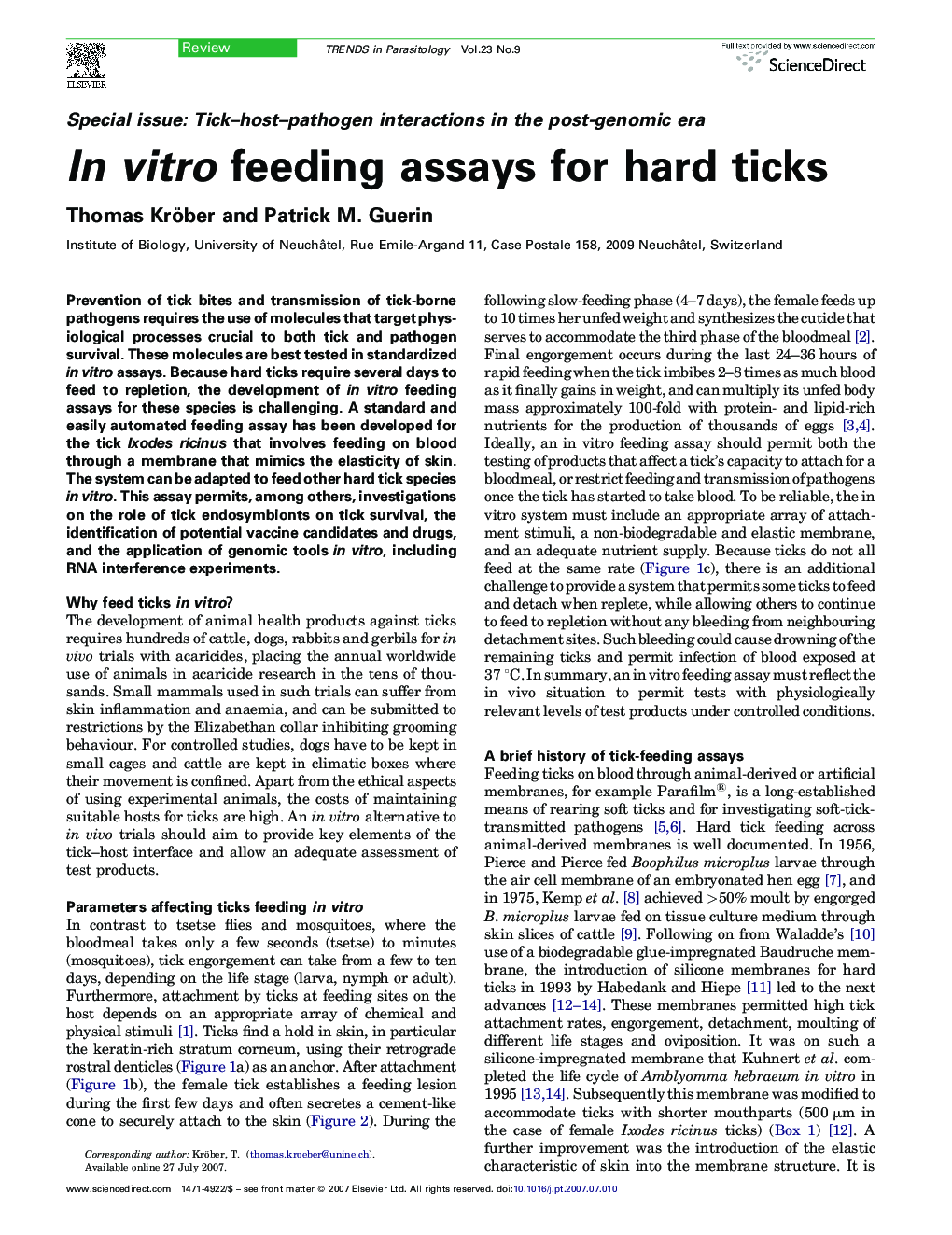| Article ID | Journal | Published Year | Pages | File Type |
|---|---|---|---|---|
| 3423970 | Trends in Parasitology | 2007 | 5 Pages |
Prevention of tick bites and transmission of tick-borne pathogens requires the use of molecules that target physiological processes crucial to both tick and pathogen survival. These molecules are best tested in standardized in vitro assays. Because hard ticks require several days to feed to repletion, the development of in vitro feeding assays for these species is challenging. A standard and easily automated feeding assay has been developed for the tick Ixodes ricinus that involves feeding on blood through a membrane that mimics the elasticity of skin. The system can be adapted to feed other hard tick species in vitro. This assay permits, among others, investigations on the role of tick endosymbionts on tick survival, the identification of potential vaccine candidates and drugs, and the application of genomic tools in vitro, including RNA interference experiments.
